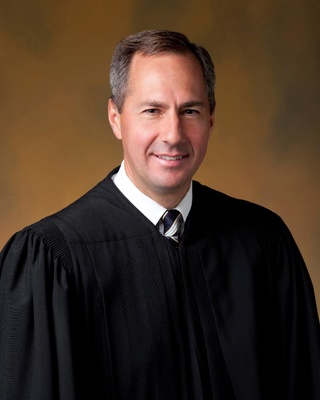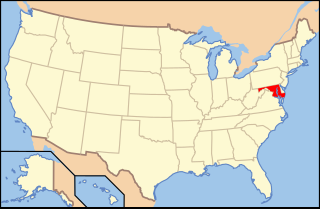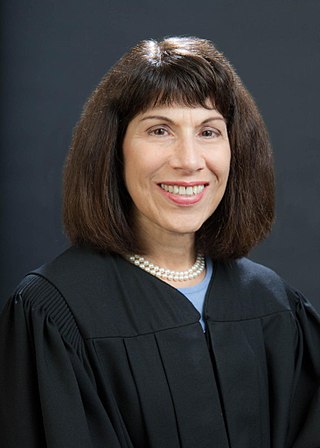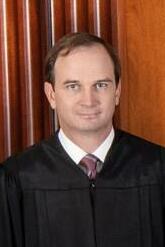Related Research Articles

Thomas Michael Hardiman is a United States circuit judge of the United States Court of Appeals for the Third Circuit. Nominated by President George W. Bush,he began active service on April 2,2007. He maintains chambers in Pittsburgh,Pennsylvania,and was previously a United States district judge.
In the United States,the right to keep and bear arms is modulated by a variety of state and federal statutes. These laws generally regulate the manufacture,trade,possession,transfer,record keeping,transport,and destruction of firearms,ammunition,and firearms accessories. They are enforced by state,local and the federal agencies which include the Bureau of Alcohol,Tobacco,Firearms and Explosives (ATF).
The Firearms Control Regulations Act of 1975 was passed by the District of Columbia city council on June 29,1976,and went into effect September 24,1976. The law banned residents from owning handguns,automatic firearms,or high-capacity semi-automatic firearms,as well as prohibited possession of unregistered firearms. Exceptions to the ban were allowed for police officers and guns registered before 1976. The law also required firearms kept in the home to be "unloaded,disassembled,or bound by a trigger lock or similar device";this was deemed to be a prohibition on the use of firearms for self-defense in the home. On June 26,2008,in the historic case of District of Columbia v. Heller,the Supreme Court of the United States determined that the ban and trigger lock provisions violate the Second Amendment.
District of Columbia v. Heller,554 U.S. 570 (2008),is a landmark decision of the Supreme Court of the United States. It ruled that the Second Amendment to the U.S. Constitution protects an individual's right to keep and bear arms—unconnected with service in a militia—for traditionally lawful purposes such as self-defense within the home,and that the District of Columbia's handgun ban and requirement that lawfully owned rifles and shotguns be kept "unloaded and disassembled or bound by a trigger lock" violated this guarantee. It also stated that the right to bear arms is not unlimited and that certain restrictions on guns and gun ownership were permissible. It was the first Supreme Court case to decide whether the Second Amendment protects an individual right to keep and bear arms for self-defense or whether the right was only intended for state militias.

Gun laws in California regulate the sale,possession,and use of firearms and ammunition in the state of California in the United States.
David Norman Hurd is a senior United States district judge of the United States District Court for the Northern District of New York.

Gun laws in New York regulate the sale,possession,and use of firearms and ammunition in the U.S. state of New York,outside of New York City which has separate licensing regulations. New York's gun laws are among the most restrictive in the United States.

Gun laws in the District of Columbia regulate the sale,possession,and use of firearms and ammunition in Washington,D.C.

Gun laws in Illinois regulate the sale,possession,and use of firearms and ammunition in the state of Illinois in the United States.

Gun laws in Maryland regulate the sale,possession,and use of firearms and ammunition in the U.S. state of Maryland.

Woollard v. Sheridan,863 F. Supp. 2d 462,reversed sub. nom.,Woollard v Gallagher,712 F.3d 865,was a civil lawsuit brought on behalf of Raymond Woollard,a resident of the State of Maryland,by the Second Amendment Foundation against Terrence Sheridan,Secretary of the Maryland State Police,and members of the Maryland Handgun Permit Review Board. Plaintiffs allege that the Defendants' refusal to grant a concealed carry permit renewal to Mr. Woollard on the basis that he "...ha[d] not demonstrated a good and substantial reason to wear,carry or transport a handgun as a reasonable precaution against apprehended danger in the State of Maryland" was a violation of Mr. Woollard's rights under the Second and Fourteenth Amendments,and therefore unconstitutional. The trial court found in favor of Mr. Woollard,However,the Fourth Circuit Court of Appeals reversed the trial court and the U.S. Supreme Court declined to review that decision.
The New York Secure Ammunition and Firearms Enforcement Act of 2013,commonly known as the NY SAFE Act,is a gun control law in the state of New York. The law was passed by the New York State Legislature and was signed into law by Governor of New York Andrew Cuomo in January 2013. The legislation was written in response to the Sandy Hook Elementary School shooting in Newtown,Connecticut,and the Webster,New York,shooting. Cuomo described the law as the toughest gun control law in the United States.

Beth Ann Labson Freeman is a United States district judge of the United States District Court for the Northern District of California.

Vince Girdhari Chhabria is a United States district judge of the United States District Court for the Northern District of California and formerly a deputy city attorney at the San Francisco City Attorney's Office.
People v. Aguilar,2 N.E.3d 321,was an Illinois Supreme Court case in which the Court held that the Aggravated Unlawful Use of a Weapon (AUUF) statute violated the right to keep and bear arms as guaranteed by the Second Amendment. The Court stated that this was because the statute amounted to a wholesale statutory ban on the exercise of a personal right that was specifically named in and guaranteed by the United States Constitution,as construed by the United States Supreme Court. A conviction for Unlawful Possession of a Firearm (UPF) was proper because the possession of handguns by minors was conduct that fell outside the scope of the Second Amendment's protection.

Gun laws in the Northern Mariana Islands regulate the sale,possession,and use of firearms and ammunition in the Commonwealth of the Northern Mariana Islands. As the Northern Mariana Islands is a commonwealth of the United States,many federal laws apply,as well as Constitutional rulings and protections.

Thomas Shawn Kleeh is the chief United States district judge of the United States District Court for the Northern District of West Virginia.

Julius Ness "Jay" Richardson is an American judge and lawyer who serves as a United States circuit judge of the United States Court of Appeals for the Fourth Circuit. He was formerly an Assistant United States Attorney for the District of South Carolina.

Mark Timothy Pittman is a United States district judge of the United States District Court for the Northern District of Texas and former judge of the Texas Court of Appeals. He was appointed by President Donald Trump in 2019.
New York State Rifle &Pistol Association,Inc. v. Bruen,597 U.S. 1 (2022),abbreviated NYSRPA v. Bruen and also known as NYSRPA II or Bruen to distinguish it from the 2020 case,is a landmark decision of the United States Supreme Court related to the Second Amendment to the United States Constitution. The case concerned the constitutionality of the 1911 Sullivan Act,a New York State law requiring applicants for a pistol concealed carry license to show "proper cause",or a special need distinguishable from that of the general public,in their application.
References
- 1 2 3 Frederick Scullin at the Biographical Directory of Federal Judges , a publication of the Federal Judicial Center .
- ↑ Reeve, Richard (27 July 2014). "Federal judge rules D.C. handgun ban unconstitutional". WJLA ABC 7. Archived from the original on 30 July 2014. Retrieved 28 July 2014.
- ↑ "Federal judge rules Washington, D.C., handgun ban is unconstitutional". cbsnews.com. 27 July 2014. Retrieved 1 July 2015.
- ↑ Hess, Hannah. "In D.C., Response to Judge's Handgun Ruling Is Mixed and Muddled (Updated)". www.rollcall.com. Roll Call. Archived from the original on 10 August 2014. Retrieved 29 July 2014.